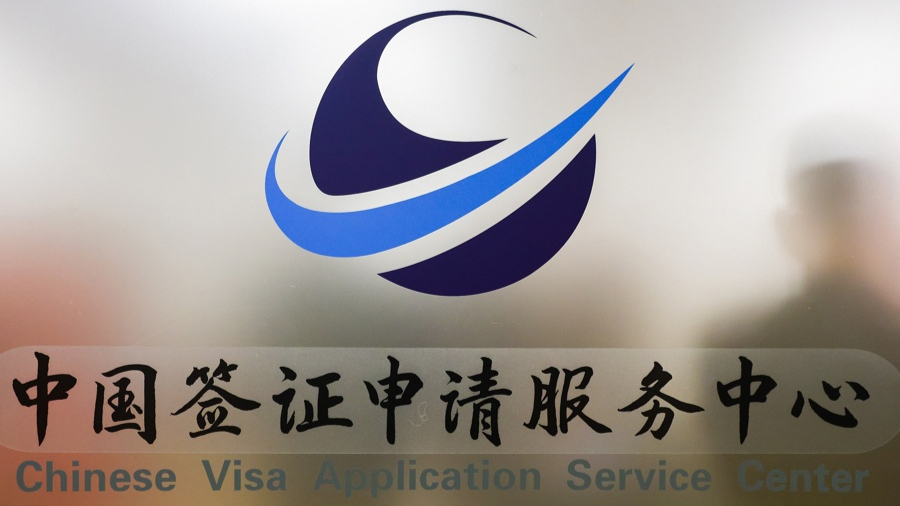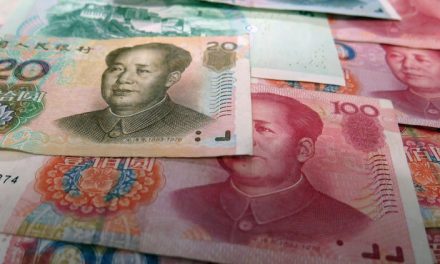The visa optimization measures demonstrate China's determination and sincerity in high-level opening-up, which will help smooth personnel exchanges, strengthen economic and trade cooperation, and promote people-to-people and cultural exchanges.
Next Friday, New Year's Eve, the people of China and Singapore will receive a special annual gift - mutual visa exemption between the two countries will take effect.
Then, on March 1, China and Thailand will officially enter the "visa-free era."
In addition to the previous short-term mutual visa exemption between Malaysia and China, the three Southeast Asian countries on the classic tourism route of "Singapore, Malaysia and Thailand" have also achieved mutual visa exemption with China.
And this is just a microcosm of the expansion of China’s visa-free “circle of friends”.
For some time, China has continued to optimize its visa policy, either unilaterally exempting foreign countries from visas, mutually exempting visas from other countries, or simplifying and facilitating visa procedures. A series of visa "combinations" have attracted world attention.
Public opinion believes that the visa optimization measures demonstrate China's determination and sincerity in high-level opening up, help smooth personnel exchanges, stimulate tourism, strengthen economic and trade cooperation, promote people-to-people and cultural exchanges, and bring double benefits to the world and China.
Take the lead in promoting the tourism market
According to reports from People's Daily, Xinhua News Agency and others, so far, China has concluded mutual visa exemption agreements covering different passport types with more than 150 countries.
Among them, we have achieved comprehensive mutual visa exemption with more than 20 countries, including Thailand, Singapore, Maldives, Kazakhstan, United Arab Emirates, Belarus, etc.; we have reached agreements or arrangements with more than 40 countries to simplify visa procedures.
According to the relevant person in charge of the National Immigration Administration, as of November 17 last year, China had expanded the scope of application of the 72/144-hour transit visa-free policy to 54 countries.
Since December last year, China has also granted France, Germany, Italy, the Netherlands, Spain, Switzerland, Ireland, and Malaysia unilateral visa-free policy treatment.
Since December 11 last year, Chinese embassies and consulates abroad have launched a temporary policy of preferential visa fees for visitors to China.
Starting from January 11 this year, China's National Immigration Administration launched five new measures to further facilitate foreigners coming to China.
In addition, more than 60 countries and regions offer visa-free or visa-on-arrival convenience to Chinese citizens.
For a period of time, China has been continuously optimizing its visa policy, which has brought about an inclusive effect.
First of all, it heated up the tourism market. For example, after Malaysia, Singapore, and Thailand announced mutual visa exemptions with China, searches in the three countries soared rapidly, adding fuel to the Southeast Asian tourism craze.
Taking Singapore travel as an example, Ctrip data shows that as of January 24, the number of orders from Chinese tourists to Singapore during the 2024 Spring Festival holiday has increased by more than 14 times year-on-year. So far this year, the number of orders booked by Singaporean tourists for inbound travel products to China has increased by 66% month-on-month.
Natalia Bayonne, executive director of the United Nations World Tourism Organization, recently said that China’s visa-free policy shows China’s trust and confidence in the world tourism industry and will help the world tourism industry pick up again.
Facilitate personnel exchanges and economic and trade investment
In addition to benefiting the tourism industry, China's measures to optimize visas are also of positive significance in facilitating personnel exchanges, promoting economic and trade investment, and intensifying people-to-people and cultural exchanges.
In terms of personnel exchanges, it will provide more convenience for foreigners to travel, do business, work, study and live in China.
The data shows that the impact of convenience is already showing.
According to statistics from the National Immigration Administration on January 1, since China implemented a unilateral visa exemption policy for ordinary passport holders from France, Germany, Italy, the Netherlands, Spain, and Malaysia on December 1, 2023, as of December 2023 On the 31st, a total of 214,000 people came to China from the six countries, an increase of 28.5% from November. Among them, a total of 118,000 people came to China with ordinary passports without visas, accounting for 55.1% of the total arrivals from the six countries in the same period.
In terms of economic and trade investment, business exchanges will be promoted and economic cooperation will be deepened.
This has become a general consensus among industry insiders, experts and scholars.
Luigi Gambardella, chairman of the China-Europe Digital Association, said that the visa-free policy makes it more convenient for European small and medium-sized enterprises to travel to China to participate in business, exhibitions and other activities.
Helga Zepp LaRouche, founder and chairman of the German think tank Schiller Institute, believes that China’s expansion of visa-free policy not only makes it more convenient for citizens of Germany and other countries to travel and explore Chinese culture, but also helps to deepen bilateral economic cooperation.
Specifically, consider tourism as an example. As China optimizes visas and boosts tourism, it will drive the development of transportation, hotels, catering, shopping and other related industries, increase employment opportunities, and then stimulate economic growth. For example, mutual visa exemption or unilateral visa exemption will effectively promote the recovery of China's inbound tourism market after the epidemic.
For countries such as Thailand and Malaysia with tourism as their pillar industry, mutual visa exemption is even more important. Especially after being hit by the COVID-19 epidemic for three years, the tourism industry in these countries has not yet fully recovered. Mutual visa exemption with China will undoubtedly give the tourism industry a shot in the arm.
According to CCTV citing comments by Zhang Yansheng, chief researcher of the China Center for International Economic Exchanges, unilateral visa exemption is very important to promote personnel exchanges, and its role will be more obvious in promoting foreign investment. Furthermore, it will also bring a higher level and higher efficiency of freedom and convenience to activities such as trade in goods and services, transportation, capital, data and information exchanges.
In fact, after China launched its visa facilitation policy, it also received positive responses from many relevant countries.
For example, the French government announced that Chinese master’s degree diploma holders with study experience in France can obtain a five-year visa;
Switzerland will provide more visa facilities for Chinese citizens and Chinese companies investing in Switzerland;
Ireland expressed its willingness to actively consider providing more convenience for Chinese citizens to visit Ireland and welcome more Chinese companies to invest and establish business in Ireland...
Outsiders believe that as the visa reciprocity policy continues to expand, it will effectively promote China's exchanges with relevant countries and further tighten the bonds of mutually beneficial cooperation between China and relevant countries.
Changing stereotypes about China
In terms of people-to-people and cultural exchanges, optimizing visas will be conducive to exchanges in education, science and technology, culture and other fields, further expand people-to-people exchanges, and promote people-to-people bonds.
After China and Thailand signed the mutual visa exemption agreement, Chinese Foreign Minister Wang Yi expressed his belief that there will be a new upsurge in exchanges between the two peoples.
Luo Zhangwu, president of the Malaysia-China Legal Federation, also pointed out that China’s introduction of the visa-free policy for Malaysia will make it easier for people from the two countries to meet and communicate, greatly facilitate business cooperation between the two countries’ enterprises, and enhance close exchanges between the two peoples.
Others believe that promoting exchanges and communication between different countries and cultures can help eliminate mutual misunderstandings and lay a solid foundation for deepening relations between countries.
In particular, the visa-free policy will make it easier for foreign people to visit China, experience China's economic development, and feel the friendliness of the Chinese people. This will help foreign people change their stereotypes about China and better understand a real China.
"Foreigners' personal experiences will make slanderous remarks about China in vain," LaRouche said.
Demonstrate open determination and sincerity
China’s visa optimization measures have also attracted attention from the international community.
Public opinion believes that China's launch of a series of new visa policies shows that China's promotion of high-level opening up is not just words, but a firm determination and practical actions.
According to a report by the Spanish newspaper El Pais, quoted by the People's Daily, China has taken concrete measures to promote the development of tourism and promote economic and personnel exchanges, "demonstrating its sincerity in continuing to expand its opening up to the outside world."
In Zhang Yansheng’s view, optimizing visas is only the first step towards high-level opening up. The next step is to promote the open flow of goods, services, and resource elements, promote the institutional openness of rules, regulations, and management indicators, and promote the comprehensive opening of innovative science, technology, engineering, and mathematics.
Public opinion also believes that China’s accelerated optimization of visa policies and promotion of personnel exchanges will be a double benefit to the world and China.
For the world, it will allow the world to see a more open, inclusive, confident and self-reliant China. Especially at a time when global economic recovery is sluggish and protectionism is on the rise, China's opening-up measures will inject greater confidence and momentum into boosting the world economy and promoting economic globalization.
For China, it will help its own openness, innovation and high-quality development, and enhance China's international image and influence.
Moreover, as China and other countries "go in both directions" on visa policies, and more countries are also considering optimizing visa policies for China, it is foreseeable that the convenience of Chinese citizens leaving the country will be further improved in the future, and the "gold content" of Chinese passports will also be Higher and higher.
This is a place for show life about china, If these articles help you life better in china, Welcome to share this website to your friends, Or you can post questions about china life in FAQ, We will help you to find the right answer.


![[Eat It]: Fu’s Claypot Rice](https://www.life-china.cn/wp-content/uploads/2019/07/1546935488-440x264.jpg)



Recent Comments